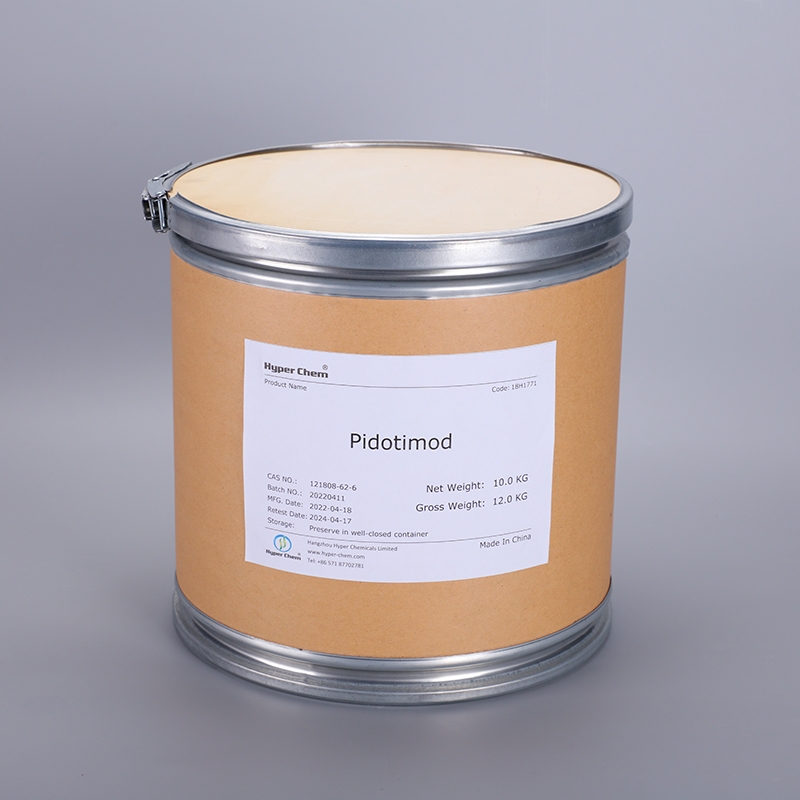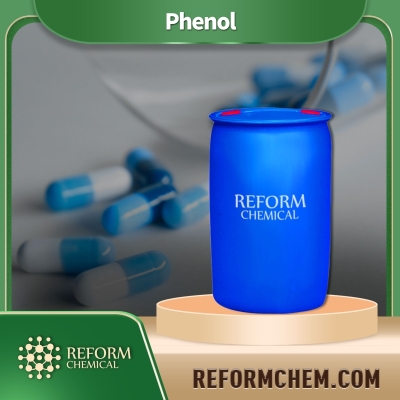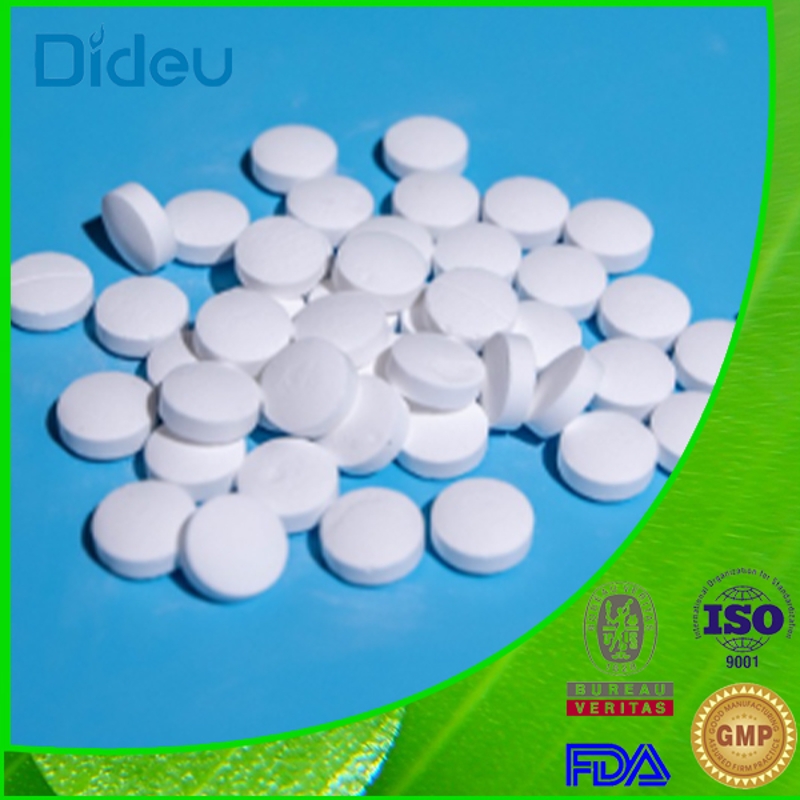-
Categories
-
Pharmaceutical Intermediates
-
Active Pharmaceutical Ingredients
-
Food Additives
- Industrial Coatings
- Agrochemicals
- Dyes and Pigments
- Surfactant
- Flavors and Fragrances
- Chemical Reagents
- Catalyst and Auxiliary
- Natural Products
- Inorganic Chemistry
-
Organic Chemistry
-
Biochemical Engineering
- Analytical Chemistry
-
Cosmetic Ingredient
- Water Treatment Chemical
-
Pharmaceutical Intermediates
Promotion
ECHEMI Mall
Wholesale
Weekly Price
Exhibition
News
-
Trade Service
Guide
Because organ transplant recipients need to take immunosuppressants for a long time, their immunity is significantly lower than that of normal people, and if infected with the new crown, it is easy to progress to severe disease1, and there are great challenges
in diagnosis and treatment management.
Today, we will follow Professor Wang Changan and Professor Yang Qingyan from Zhengzhou Seventh People's Hospital to understand the effect
of the first domestic new crown oral small molecule drug azvudine in patients with new crown pneumonia complicated by kidney transplantation.
Case features
● Patient: 3 months after kidney transplantation, severe/critically ill high-risk group, not vaccinated against the new coronavirus
● Real-world experience: This case confirmed that azvudine has a good efficacy and is safe and tolerated in patients with new coronary pneumonia who are in an immunosuppressed state after kidney transplantation
Case introduction
First, the basic situation
● Female, 55 years old
● 3 months after kidney transplantation, history of hypertension for more than 5 years
● Risk factors: immunosuppressive state, not vaccinated against the new coronavirus
2.
Review of the course of diagnosis and treatment
● Consultation time: 2022-11-3
● Complaint: 1 day positive for new crown nucleic acid test
● Related inspections
➢Symptoms and signs related to new coronary pneumonia: body temperature 37.
2°C, with dry throat, low-grade fever, obvious cough, diarrhea, washy stools, 4-7 times/day
➢ Coronavirus nucleic acid test: positive (+)(O: 27.
06,N: 24.
85)
➢Blood routine: hemoglobin 94g/L↓, neutrophil percentage 83.
6%↑, lymphocyte percentage 10.
2% ↓
➢Liver function: glutamyl transpeptidase 49U/L↑
➢Myocardial enzymes: creatine kinase 207.
9U/L↑, lactate dehydrogenase 384U/L↑
➢ ESR (ESR method) 35mm/h
➢Chest CT: inflammation of the lower lobe of the right lung, consistent with the pulmonary manifestations of new coronary pneumonia
➢ Cardiac ultrasound: left ventricular diastolic function is reduced
● Diagnosis:
1.
Novel coronavirus infection common type;
2.
Postoperative state of kidney transplantation;
3.
Hypertension grade 3 (very high risk)
● Treatment plan:
1.
Antiviral therapy: azvudine (5mg/day)
2.
Symptomatic treatment: Lianhua Qingwen capsules, Suhuang cough capsules
3.
Immunosuppressant reduction
➢ Selection considerations: (1) Patients after kidney transplantation are heavy/critical high-risk groups, with low nucleic acid Ct value, high novel coronavirus load, and urgent need to reduce viral load; (2) Azvudine recommended in the "Diagnosis and Treatment Plan for Novel Coronavirus Pneumonia (9th Edition)" has outstanding performance in reducing viral load and improving clinical symptoms; (3) Combined with traditional Chinese medicine Lianhua Qingwen Qingwei Qingheat and detoxification, Suhuang cough capsule symptomatic supportive treatment; (4) The transplant recipient has a positive performance of lung CT, so the dose of immunosuppressants is reduced
➢ Date of first treatment with azvudine: November 7, 2022
Third, the therapeutic effect and evaluation of azvudine
1) Summary of the efficacy of azvudine treatment in this patient
✓ Rapid improvement of COVID-related symptoms;
✓ Rapid improvement and stabilization of chest CT progression;
✓ Rapid reduction of viral load, achieving two consecutive nucleic acid Ct values >35 in 5 days;
✓ No significant adverse reactions
.
2) Detailed efficacy records
✓ Relevant sign/symptom changes (Figure 1, Table 1)
Figure 1: Changes in body temperature
Table 1: Changes in respiratory symptoms/complaints
✓ Chest CT changes (Figure 2)
Fig.
2 Changes in chest CT from initial diagnosis to discharge
✓ Changes in nucleic acid test results (Table 2)
Table 2: Changes in nucleic acid test results from initial diagnosis to discharge
Case summary and reviews
Organ transplant recipients need to take immunosuppressants for a long time after surgery, and their immune function is in a state of decline, and if the infection with the new crown progresses rapidly, it is easy to progress to severe disease1
.
Infections, especially respiratory infections, are the most common complication and leading cause of death in organ transplant recipients2
.
The Diagnosis and Treatment Plan for Novel Coronavirus Pneumonia (Trial Version 9) classifies people with immunodeficiency (such as immunodeficiency caused by long-term use of immunosuppressive drugs) as a severe/critical high-risk group for new coronary pneumonia3
.
This patient who took immunosuppressants for a long time after kidney transplantation belonged to the severe/critical high-risk group of new coronary pneumonia, and was not vaccinated against the new coronavirus, and was very easy to turn into severe pneumonia, and should be treated with antiviral drugs
as soon as possible.
Professor Chang Junbiao, Deputy Secretary and Vice President of Zhengzhou University in Henan Province, and his team explored and developed China's first oral small molecule antiviral drug, azvudine, which has made outstanding contributions
in this epidemic prevention war.
Azvudine has a broad-spectrum effect of inhibiting RNA virus replication, with a half-life of more than 120 hours in target cells, and the drug is highly targeted and long-acting; Clinical trials have confirmed that azvudine has the advantages of low dosage, good effect and high safety in the treatment of new coronary pneumonia4,5
.
After adding the new antiviral drug azvudine (5mg/day), the patient's symptoms improved rapidly, CT improved, the viral load was rapidly reduced, and two consecutive nucleic acid Ct values > 35 were achieved in 5 days, and rapid cure and discharge
were achieved 。 It can be seen that the early use of azvudine can inhibit the replication ability of the new coronavirus to a certain extent, accelerate the time of immunosuppressed patients to turn negative, shorten the course of hospitalization, and reduce the chance of severe disease; At the same time, it has also been confirmed that azvudine has no obvious adverse reactions, and it does not need to be reduced in patients with renal insufficiency, which will provide an important reference
for the treatment of other immunosuppressed patients.
At present, although China's new crown vaccine has been widely vaccinated, and the severe disease rate of variant Omicron has been very low, but the elderly, combined immunodeficiency people and other severe/critical high-risk groups of new crown pneumonia still face a huge risk of severe disease, condensing "Chinese wisdom" azvudine can significantly reduce the risk of severe disease progression, no obvious adverse reactions, reasonable price, easy production, easy storage and transportation, and to a certain extent avoid unnecessary medical resource runs.
It is an indispensable Chinese force
in the domestic and global new crown pneumonia epidemic prevention and annihilation war.
Introduction from review experts
Professor Wang Changan
Director of Zhengzhou Institute of Urology
Director of Kidney Transplantation and Nephrology Diagnosis and Treatment Center of Zhengzhou Seventh People's Hospital
Member of Organ Transplantation Branch of Chinese Medical Association
Member of Organ Transplantation Branch of Chinese Medical Doctor Association
Member of the Standing Committee of the Organ Transplantation Branch of the China Association for the Promotion of International Healthcare Care
Member of the Professional Committee of China Research Hospitals
Vice Chairman of Henan Organ Transplantation Association
Member of the Standing Committee of Henan Provincial Nephrology Professional Committee
Member of Henan Provincial Medical Ethics Committee
Vice Chairman of Zhengzhou Nephrology Association
Case sharing: Doctor's introduction
Professor Yang Qingyan
Deputy Director of Kidney Transplantation Kidney Disease Diagnosis and Treatment Center of Zhengzhou Seventh People's Hospital
Deputy Director, OPO Office
Member of the Organ Donation and Acquisition Management Committee of the Chinese Hospital Association
Member of Organ Transplantation Branch of Henan Medical Association
Vice Chairman of the Youth Committee of Organ Transplantation Branch of Henan Medical Association
Member of Organ Transplantation Branch of Henan Medical Association
Member of the Standing Committee of the Nephrology Branch of Henan Association of Integrative Traditional Chinese and Western Medicine
Member of Henan Association of Traditional Chinese Medicine Nephrology
References
1.
CHEN Song, ZHANG Weijie, CHEN Gang, et al.
Guidance on the clinical diagnosis and treatment of novel coronavirus infection in 2019 for organ transplant recipients(first edition)[J].
Chinese Journal of Organ Transplantation,2020,41(03):136-139.
)
2.
Ju Chunrong, Li Ning, Qiu Tao, et al.
Clinical characteristics of novel coronavirus pneumonia in organ transplant recipients and management strategies during the epidemic period(1st edition)[J].
Organ Transplantation,2020,11(02):185-193.
)
3.
National Health Commission.
Diagnosis and treatment protocol for novel coronavirus pneumonia (trial 9th edition).
2022.
3.
4.
https://mp.
weixin.
qq.
com/s/97ADWXKrSta_73GEyDYmDA
5.
Chang Junbiao.
Research progress of oral small molecule drugs for the treatment of new coronary pneumonia[J].
China Science Foundation,2022,36(04):630-634.
)







